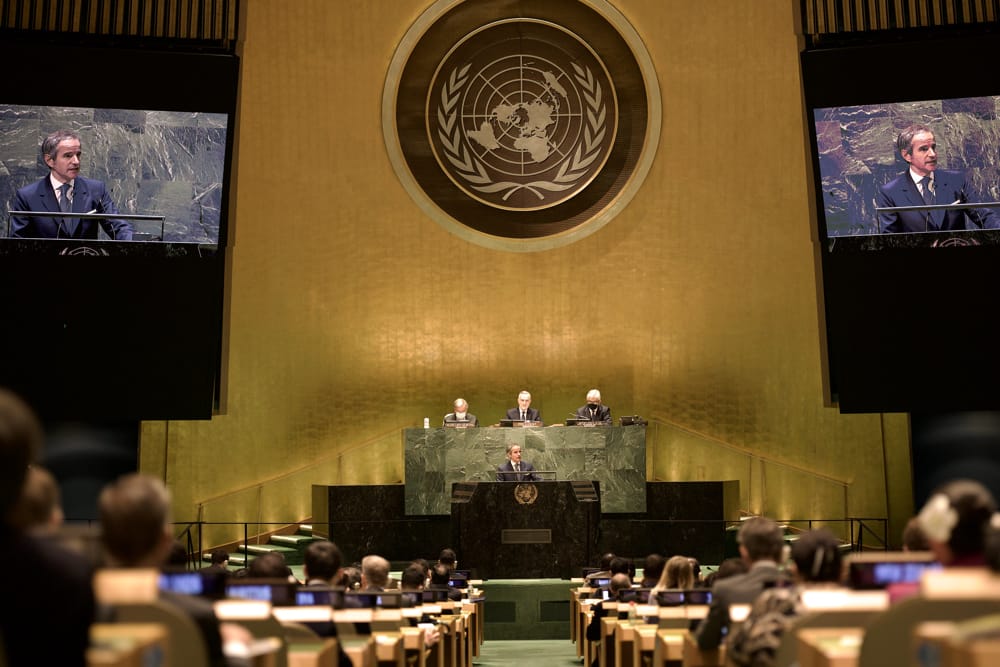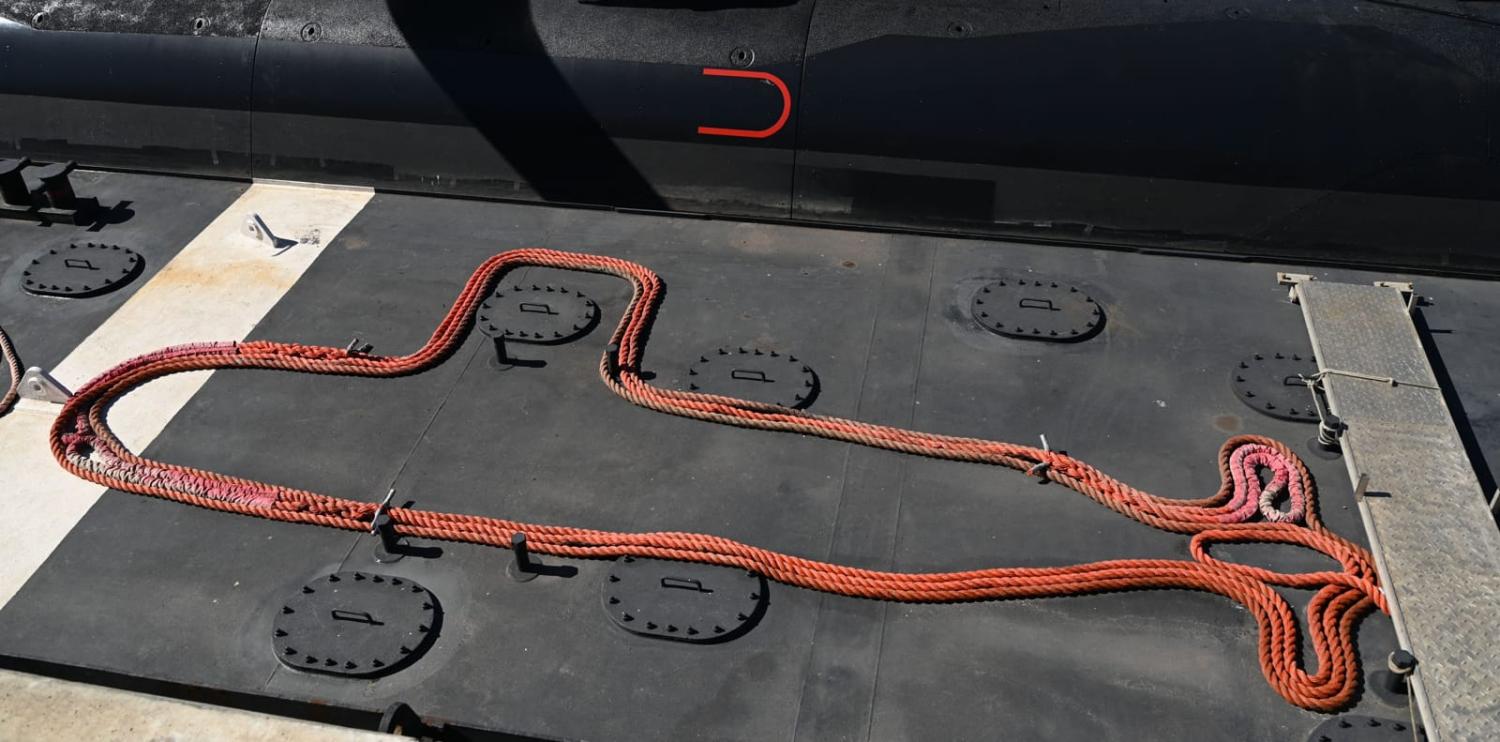When Australia, the United Kingdom and the United States announced the AUKUS trilateral security cooperation agreement a year ago, it didn’t get a uniformly positive reception in Southeast Asia.
Indonesia’s Ministry of Foreign Affairs said it was “deeply concerned” over an arms race in the region. Malaysia expressed concerns at multiple levels, with both the prime minister and foreign minister raising concerns that it could “potentially spark tension among the world superpowers and aggravate aggression between them in the region”. Malaysia’s Minister for Defence Hishammuddin Hussein went as far as saying he would consult with Beijing on its views on AUKUS.
Of course, reactions varied across the region, sometimes in the same country. While Philippine President Duterte was worried the pact could trigger a “nuclear arms race”, his Foreign Secretary Teodoro Locsin Jr saw AUKUS as helping to “restore and keep the balance rather than destabilise it”. Singapore was perhaps the most positive with Minister for Foreign Affairs Vivian Balakrishnan “not unduly anxious” and Prime Minister Lee Hsien Loong hoping “that AUKUS would contribute constructively to the peace and stability of the region and complement the regional architecture”
While some argued that private reactions were probably more positive than public ones, overall the reaction a year ago was at best “a lukewarm reception” with “lingering uncertainty”, as described by Indonesian think tank expert Evan Laksmana. There was no formal response from the Association of Southeast Asian Nations.
AUKUS caught Southeast Asian states by surprise. So it is possible that some of the reaction was less around the substance but as the Lowy Institute’s Susannah Patton noted because of its form: “a loudly announced Anglosphere security partnership”. Australia was accused by other analysts of showing “cavalier disregard” by not consulting Southeast Asian neighbours, including when meeting Indonesia’s foreign and defence ministers only a week prior. Indonesia’s President Widodo expressed his displeasure at the secrecy. Writing in the Jakarta Post, senior Indonesian diplomat Abdul Kadir Jailani called for deeper conversations about AUKUS to help build mutual trust, confidence and diplomacy.
So a year since it was announced, how does the region view AUKUS?

First, concerns about nuclear non-proliferation have not gone away. In its submission to the Nuclear Non-proliferation Treaty Review Conference last month, Indonesia formally raised its concern that sharing of nuclear technology to power submarines could heighten the risk of new weapons of mass destruction. These concerns appear to be widely shared, including by Vietnam and Thailand. According to the University of Tasmania’s James Chin, many Southeast Asian countries “think there is no such thing as acquiring nuclear-powered submarines without the prospect of acquiring nuclear weapons in the future”. New Minister for Foreign Affairs Penny Wong met with IAEA Director General Rafael Mariano Grossi and committed Australia to comply with all of its non-proliferation obligations. Australia will need to continue to reassure the region on this point.
By contrast, the other main aspect of AUKUS – cooperation on “advanced military capabilities” such as artificial intelligence and quantum technologies – appears to have attracted less interest. For example, announcements around hypersonic missile development don’t appear to have elicited much of a response. Overall think tank coverage of AUKUS has decreased.
Given that any further decisions on the submarines won’t take place until March next year, the reality is that AUKUS has not brought major change so far. The question raised a year ago was whether AUKUS would contribute to a more tense and unstable region. So far, the answer is probably not much. The region may be finding, in the words of the Australian National University’s Rory Medcalf, that AUKUS is “something ASEAN can live with”.
The biggest ongoing effect of AUKUS appears to be the debate around what it means for ASEAN and in particular for “ASEAN centrality”. I’ve been to multiple dialogues organised by CSIS Indonesia, ISIS Malaysia and RSIS Singapore where Southeast Asian experts discuss AUKUS and the Quad (invariably bracketed together) and their implications for ASEAN’s role at the centre of regional architecture.
AUKUS has been variously described as a “wake-up call” for ASEAN that it was being “sidelined” and “being made publicly redundant” with geostrategic competition “pushing ASEAN into strategic irrelevance”. According to ISEAS’ William Choong and Ian Storey, “ASEAN needs to question why AUKUS has happened without its knowledge”. As former Indonesia foreign minister Marty Natalegawa notes, AUKUS is a reminder to ASEAN of the cost of “dithering and indecision”.
Patton’s reminder is that it’s important for Australia to take seriously fears in the region that ASEAN’s influence and coherence are being eroded. Realising the reaction from the region, in the week after the announcement, Australia released a statement of its steadfast commitment to ASEAN centrality and reinforced this in public messaging and in ministerial visits. Foreign Minister Penny Wong tackled this head on in an early speech to the International Institute for Strategic Studies in Singapore where she discussed what ASEAN centrality means, concluding that, “As an entity, ASEAN is indispensable.”
The key message that Australia needs to be sending to the region is around a shared future: de-emphasising great power competition, responding to Southeast Asia’s priorities and connecting on shared interests. One year ago, AUKUS was painted as Australia heightening major power competition and showing that it was disconnected from its immediate region. The new government’s narrative instead focuses on strategic equilibrium – “where countries are not forced to choose but can make their own sovereign choices, including about their alignments and partnerships,” as Wong puts in – and on working together to achieve shared interests. It remains to be seen how this change in tone will be received in the region.
One year on, there may be less criticism of Australia over AUKUS, but the ongoing ASEAN soul-searching shows the region continues to need reassurance.

